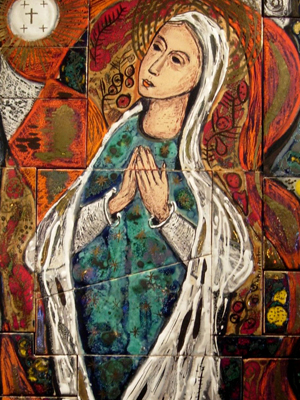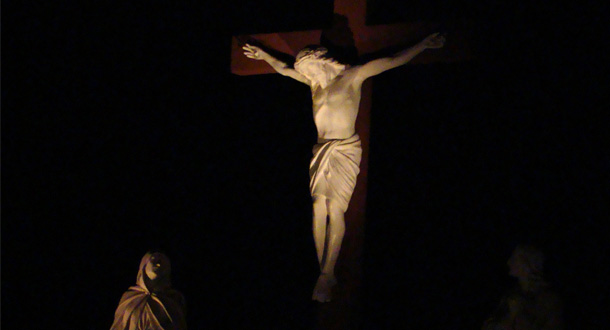
Scripture:
2 Corinthians 3:15-4:1, 3-6
Matthew 5:20-26
Reflection:
In the context of the commandments, Jesus challenges us today to move beyond the literal interpretation of each commandment and to adapt his loving attitude for each other. He tells us to forgive those who have offended us or irritated us in any way.
I am reminded of the times throughout the day, even when at Mass or in prayer, how frequently my mind wanders away to think about the people who have disagreed with me or hurt me in some way. I include in that list the people that I myself have judged for any aspect of their behavior or lifestyle that I do not agree with. How do I move beyond my feelings to forgive and reengage with each and every one of them? Unfortunately, the list is more than just a handful of family, friends and acquaintances. As I return to refocus on my prayer, I realize that the fundamental problem is not one that they have created, no matter what their transgression, if any, has been. The problem is with my own attitude and feelings. In the context of St. Paul’s letter to the Corinthians it is at these very times that a veil exists between myself and my Lord.
The “new commandment” that Jesus engages us in today is not an easy one to follow. It requires a “new attitude” toward everyone in my life. It requires more prayer, quiet reflection, and ultimately forgiveness and reconciliation. It requires me to lift the “veil” that separates me from what he has asked me to do. It also requires patience with myself to be able to diligently but effectively seek such forgiveness from within my heart and then to turn to those who I am estranged from to try to reconcile with each of them as much as possible.
It is clear from his own life what Jesus expects of us. He has challenged us to love one another as he has loved us. This is a lifelong and obviously not an easy challenge. I am reconciled to the fact that I will never truly be able to love everyone around me in the exact way that Jesus did. But I am okay with that so long as I do not let go of my determination to try to do so. My continuing challenge is to be continually mindful of the people in my life who need my forgiveness, even if they aren’t aware of it.
May the Passion of Jesus Christ be always in our hearts.
Bill Berger has had a lifelong relationship with the Passionist Family. Bill and his wife, Linda, are currently leaders of the Community of Passionist Partners (CPPs) in Houston, Texas.







